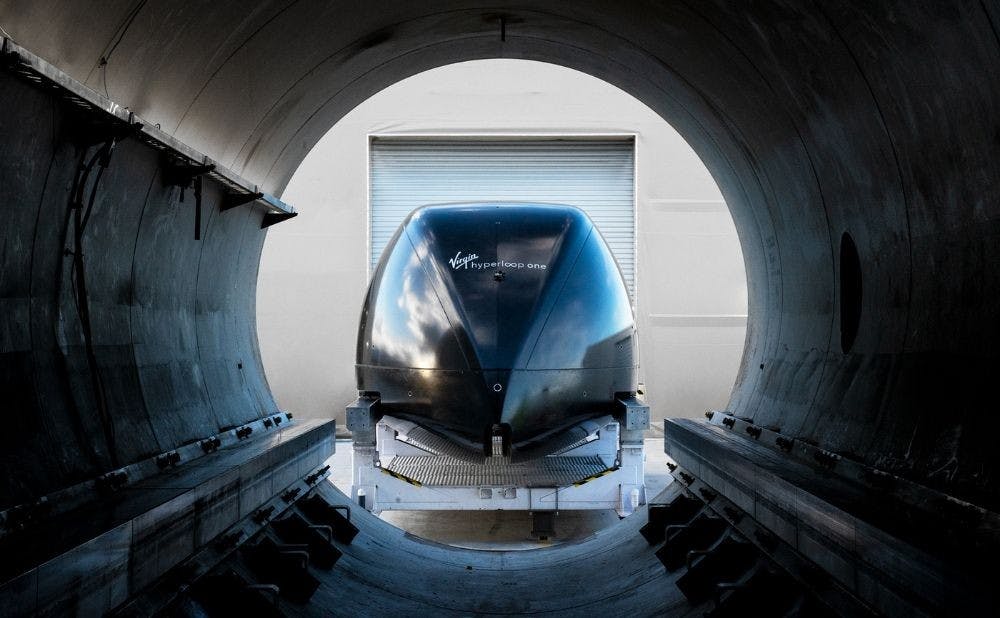After the Triangle’s decades-long courtship with the Durham-Orange Light Rail Transit project came to a crashing halt earlier this year, the region appears to be looking for a mass transit rebound.
It may have found one in “magnetic-levitation” pods, as officials are flirting with the idea of bringing a “hyperloop” to the region.
The “proprietary depressurized tube infrastructure” could connect Raleigh, Raleigh-Durham International Airport, Durham and Chapel Hill. Although such a mass transit system could reduce the trip time from Raleigh to Durham to less than 10 minutes, a hyperloop in the Triangle may be years away.
“There is a tremendous opportunity to further connect these regional anchors and link North Carolina’s capital area with markets to the south and the northeast using a more efficient, sustainable, and reliable form of passenger and cargo transportation,” Jay Walder, CEO of Virgin Hyperloop One, wrote in a July news release. “It’s incredibly energizing to see North Carolina and the Triangle region take this important step forward in amplifying its vision for what 21st-century transportation can be.”
According to the release, North Carolina’s Regional Transportation Alliance (RTA) has launched an exploration into using the technology to connect the region’s cities. The Alliance also discussed a feasibility study at an RTA breakfast event.
The technology uses a depressurized tube infrastructure that nearly eliminates friction, cutting down the required energy and the costs of operation. It sends cargo and passengers between portal access points using pods “powered by magnetic-levitation,” the release explained.
“The Research Triangle area is uniquely positioned from a technology focus, spatial layout and favorable mid-east coast location to benefit from a hyperloop travel solution that could quickly link America’s R&D cities of Raleigh and Durham with each other and with neighboring regions in the southeast and mid-Atlantic," Joe Milazzo II, RTA’s executive director, said in the release.
Virgin Hyperloop One’s passenger and cargo pods are fast—they aim to travel at speeds that could exceed 600 mph. A Boeing 777 tops out at 590 mph.
The hyperloop company is also the only one to have built an “at-scale test track,” located in Nevada, that has been used for hundreds of test runs.
According to the history of Virgin Hyperloop One found on its website, the idea grew out of a white paper Elon Musk wrote in 2013 on transporting people and goods using tubes. Then Josh Giegel and Shervin Pishevar founded Hyperloop Technologies, Inc. in 2014, that would evolve into Virgin Hyperloop One.
However, the implementation of such technology in the Triangle seems far off.
According to the Durham Herald-Sun, Virgin Hyperloop One doesn’t expect to have federal approval to construct a hyperloop in the United States until 2024. A feasibility study for a “relatively flat, uncongested area where the right-of-way is already available” connecting St. Louis and Kansas City projects the cost per mile for the hyperloop construction to be about $30 to $40 million—the light rail project would have been more than $100 million per mile, according to the Herald-Sun.
Michael Schoenfeld, vice president for public affairs and government relations, wrote in an email that the University is “focused on working with public and private sector partners in the region to address our transit needs in particular through further planning for commuter rail and bus rapid transit.”
The University is hosting a Regional Transportation Alliance Opportunity Series event at the Nasher Museum in October. According to Schoenfeld, Duke has not been involved with the hyperloop discussion so far.
“It’s an interesting idea, and we look forward to hearing more as it develops,” he wrote.
Get The Chronicle straight to your inbox
Signup for our weekly newsletter. Cancel at any time.
Bre is a senior political science major from South Carolina, and she is the current video editor, special projects editor and recruitment chair for The Chronicle. She is also an associate photography editor and an investigations editor. Previously, she was the editor-in-chief and local and national news department head.
Twitter: @brebradham
Email: breanna.bradham@duke.edu

